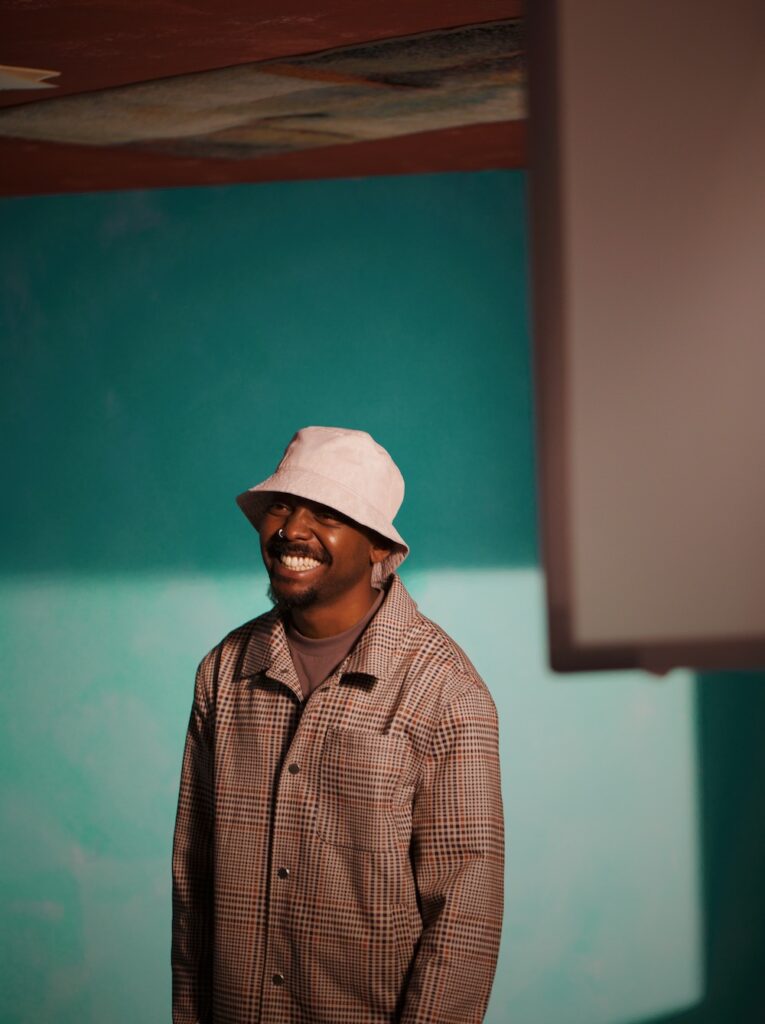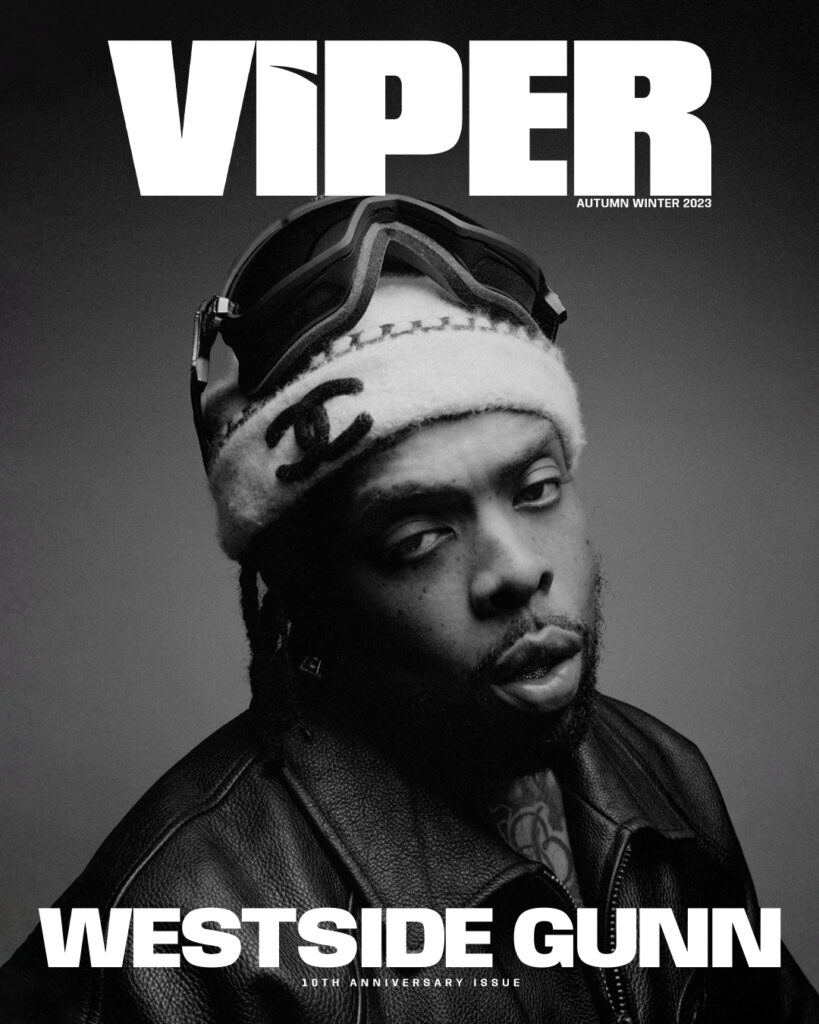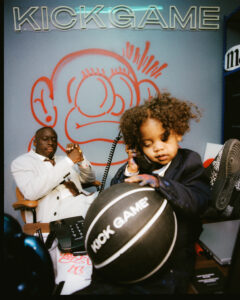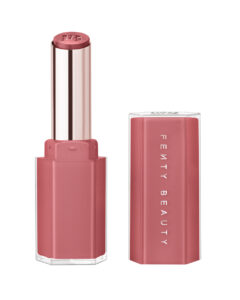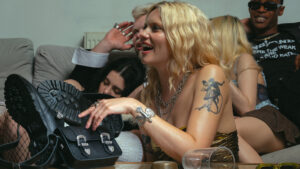The introspective innovator talks to VIPER about his latest project, the layers to his artistry, and the search for creative freedom in an unforgiving city.
Kieron Boothe’s chameleonic flow and unique wordplay chronicle his personal experiences and perspective. This is displayed throughout his latest EP, Views From The Bottom, which finds the East London artist dipping in and out of sounds; from jazz and hip hop to rap and trap. It’s his most candid piece of work to date he tells me, his words and thoughts cut through like a sudden hail storm and their power is constructive, a potency that’s evident in tracks like ‘Out Of Sight’.
At school, Boothe got an appetite for penning his thoughts into lyrics when an older student offered to show him and his friends the ropes when it came to writing and recording a track. In the years following they would unknowingly become the architects behind a new generation of rap, spitting their introspective lyrics on platforms like SBTV. Since, he hasn’t been in any kind of rush to make it big – it’s all about taking things at a pace that doesn’t feel forced for Boothe.
His time at university was not only dotted with ventures into music, but also his affinity with design: something that has been equally vital as a creative outlet for the 29-year-old. In 2019 he started taking serious commissions for his designs, to the point where he felt it took precedent. And yet this became an unforeseen asset in growing his musical career, as he admits “…it was building relationships with some of these new artists that you might not have put side by side with my sound.”
When you listen to Boothe, he takes you on a whirlwind tour of where he’s been, and by the end, you’ll want to know what’s next. What creative trick will he next pull out of his hat?
VIPER: You’ve just dropped Views From The Bottom. What do you want listeners to take away from this new project that they might’ve not known about you before?
KB: I think on this one, there are little things. I tried to just put my thoughts into the music a little bit more. I always do. But I do feel like with this one there are more unfiltered elements. There are certain songs where I really say what I feel about certain things. This is like a perfect intro project, in a way… If no one heard me before, I’ve treated this as my introduction.
That’s a great way to approach it, you’re always going to be gaining new fans, and new listeners. There’s also the style of your flow that you seem to take to the next level with every release. How did you approach the vocal production on the new project?
I just make things and see where it takes me. I did a project called ‘The Stoned Age II’…and basically, this new EP was mostly made before Stoned Age II, but I just wanted to drop a little project before the EP came out. The first song [on Views From The Bottom] ‘Out Of Sight’ was from 2019 and the last song ‘Sundown’ is from 2022, so I kind of looked at the bulk of songs and the range I had just before lockdown until now. Each song has a different producer, and different speeds and then I feel like they bring out different aspects of me depending on the production. So like you say, the flow on ‘No Regrets’ is not the same as ‘Original Sound Man’. You’ll never find me repeating the flow pattern twice.
It’s more about going with the feel of it?
Yeah. It’s usually not even a conscious decision. I think it usually just comes through because of the production. And on top of that, all the music I listen to. So I think I wanted to create a balanced project. I wanted to open it with rap and hip-hop style and then after ‘No Peace’, I wanted to move more into the hip-hop and jazz-rap styles. So the first three songs are hip hop drums. And then the last three songs are more Trap – bouncier drums, to kind of show the progression.
You can feel the continuation in it, there’s something very consistent about that. And you’re clearly someone who’s creatively driven, you’ve got your brand of design behind you. And then the music as well. Do you ever have moments where you feel like you freeze up creatively?
Often. Especially lately. This is why I want to take a break for a few months, I feel like I was starting to get a bit frustrated because I’m doing a lot of work. At some points, I get quite a lot of jobs that are demanding and it slyly takes the fun out of the art and design side. So when that starts to happen, if I’m doing work consistently for other people for like a month or two it can start to drive me a little bit crazy and I’ll start to freeze up and not do anything for a bit. That’s why I’m learning to get that balance, and knowing how to keep it engaging and fun. Lately, I’ve been watching a lot of movies and looking at my surroundings for inspo. Even if I’m not in the mood to draw or make anything.
Like you’re feeding your mind…
Yeah, exactly. Even later today, I might go to an exhibition and just get out a bit… maybe go to an event.
It’s a strong addition to your legacy to have both avenues, and perhaps far and few amongst others. Do you think design is something that gives you leg up in terms of standing out from other artists out there?
100%. I think at the start I didn’t realise that – I dropped my first project in 2014, I was dropping music before that, but the earliest work you can find is from 2014. And I’ve always done the artwork myself, but then it kind of changed in 2019 – which is when I started doing commission work. So there was a period around 2019-2020, the artwork was bigger than my music in some ways. It was about getting opportunities because from the artwork I was doing jobs for big labels or for artists that are not in the same genre – like drill artists. So it was building relationships with some of these new artists that you might not have put side by side with my sound. As you said, there aren’t many people that approach both art and music in the way I have. I used to always get asked what do you prefer? Art or Music? Now, no one really asks this because I’ve proven that I’m doing both to an equal standard. And It’s even showing me, going forward, what I want to do for the next 20 years.
I read somewhere you started to take music seriously around the time you left school… How do you think your priorities within music have changed or evolved since then?
I’ve always been so naïve in a sense because I have always put music and creative shit first. I’ll put it before getting a ‘proper job’. So I feel like there were years of my life where I wasn’t making too much money as I wasn’t even making £1000 a month, because I would work jobs that I could work four hours a day, go home and make music. My priority was always with making music. I don’t really care about money in that sense, I would rather earn well off of what I love doing.
It’s a difficult side to having a passion for the creative stuff, but it’s good that you pushed through that as well…
Definitely. That time when I had no money, I would buy a little set-up for £200 or so and I’d watch YouTube videos to learn how to mix. It wasn’t that good, but that’s some of the stuff on SoundCloud that has 60,000 streams and it’s not even mixed properly. Before 2016 and Spotify I didn’t stop doing the work. And it meant that I had video guys that would reach out and do stuff for free. My friends might help me out with mixing so this progression is something I only see I look back now, how much has changed in a short space of time.
You’ve got to have moments where you sit down and really take in your accomplishments, and I think especially living in London, we forget that…
100%! That’s the toxicity of the place [laughs]. It’s a rat race.
With Spotify and algorithms… How do you personally feel about the nature of streaming success at this point?
Hate it, I’ll be honest. My biggest song is ‘No Peace’ which is part of the silhouettes project and that’s at three-point-something million. My other popular single is with M25 and KeepVibeNear, and that’s nearly half a million. Trying to reach that again has been like you’re chasing the dragon. It’s disheartening at times because people link numbers to something being good. That doesn’t really mean anything. I’ve had one or two things go into these big playlists on Spotify for example, and then nothing else since. The goal is to get in as many playlists as you can and hope that people follow you from those playlists and that you can convert those listeners to fans. Otherwise, you know, you’re in these playlists for a week or two, and then you come out or you get replaced, and then what? That doesn’t mean people are going to come to your show. I’ve got to constantly wrap my head around the fact it doesn’t really matter. Right now, I’m focused on real connections – my buzz in London has grown like crazy this year. When I look at my stats at London is at the top. So where I used to always get told ‘your music will do well overseas’ or ‘if you went to the States’ blah blah blah… I remember: I’m from London and just because this sound isn’t the most popular here, doesn’t mean people won’t like it.
100%, the reality is there is going to be a fanbase for your sound in London, because people are gonna relate.
Trust me! I’ve just done a show with the Silhouettes Project Hackney and there were about 2000 people. There are people that like it.
You recently performed at the Jazz Cafe as well, which is a really nice intimate venue. Some people really find their confidence on stage some struggle with it… What does performing your songs live in front of an audience do in terms of how you feel towards your music?
As you said, I think I’m someone that has definitely found confidence through performance, because otherwise, I’m quite a reserved, chill person. It used to bug me before, I used to think, am I too chill when I’m performing? I don’t jump around and it’s not really singalong stuff. But over the last few years, I’ve found my way of delivering. And I’ll still get mad nervous or whatever else but I think I’ve learned a way to block things out. I had a show at Adidas the other day with a good few 100 people, and it was the first time I’m performing certain songs; with a live band on top of that. But once it started I almost zoned out and went into autopilot. And it was one of the best shows I had.
Going back to something you said before where people tell you to aim for an audience in the US or something like that. In terms of how people have labelled you in the past, do you ever get tired of being put into a category like ‘underground artist’?
Yeah for sure. But you know what I’m kind of starting to like it a little bit more because there’s certain artists that are kind of underground but not really at the same time. Like if you look at someone like Kaytranada or Goldlink, they’re not part of the mainstream per se, but they’re selling out shows and tours and are extremely relevant in the scene. I don’t think I want to be a Dave or Stormzy – you don’t even need to be, give me a quarter of that and I’m good. As I get older, and I do more art stuff, I don’t even know if I want to rap forever. Or if I want to rap consistently, forever, I might do something like Childish Gambino, reenter every so often. Right now my goal is to just smash it and over-deliver, to get myself to a position where I can come and go every couple of years; but then consistently do art and be involved in concept art or storyboarding projects where my name can be attached to something but people might not even know it’s me behind it. Whereas music is a lot more egotistical and ‘look at me’. That’s kind of the nature of it.
Tapping into your past a little bit too, what was your relationship with music like growing up?
I started rapping at around 11 or 12. And I had a mentor at school for two months or so, this guy Isaac, who was about 14. He took me and my friends in and was showing us how to write and record etc. That basically kick started the drive, I guess. Music for me has always been personal. I’ve always been going for something a bit different to everybody else in my sound but I didn’t realise it early on. Even after school and and uni times when I was on SBTV I don’t think we realised at the time, there wasn’t UK rap like what we were doing… there was a few people before us, but everyone was so disjointed. I have to write a song about something I’ve experienced or it has to come from a particular place or moment, but obviously not everyone is like that.
Something that really stood out to me is how not one video of yours has the same feel. It’s like they all communicate a different part of you. Do you ever get involved in the creative production behind your videos?
Definitely, to a certain degree – nowadays I work with a director called Modu who I can trust will capture the essence of the song. We’ve built a friendship over the two or three years where he’s worked on 90% of my videos in that span of time. Last year we really found our team, in terms of DOP, editor, stylist… organically the team has come together. I can trust the stylist understands my style because it used to be the case that I would source my own clothes but now I can trust that they will know what I feel comfortable wearing. The pieces are really coming together.
